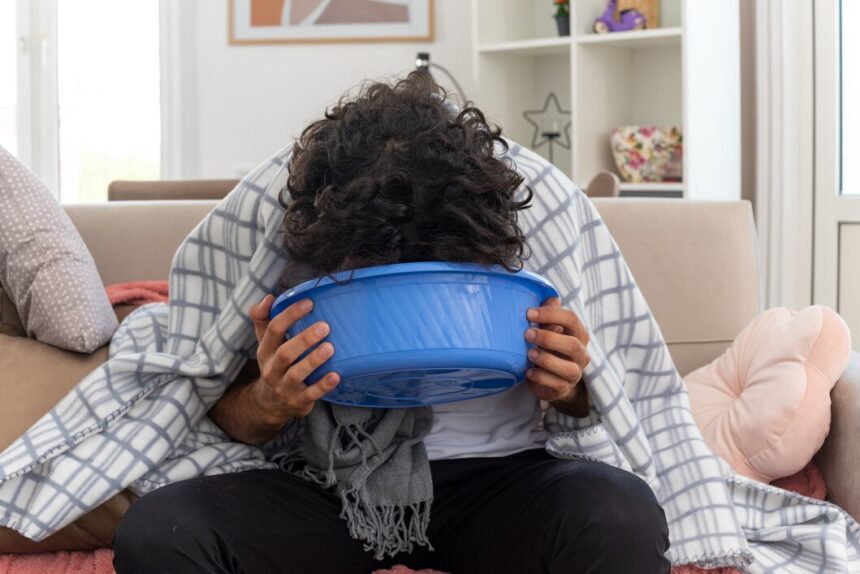Norovirus, often referred to as the “winter vomiting bug,” is a highly contagious virus that causes gastroenteritis, leading to inflammation of the stomach and intestines. It is a leading cause of foodborne illness worldwide and can spread rapidly in crowded environments such as schools, nursing homes, and cruise ships. Understanding the signs and symptoms of norovirus infection is crucial for early detection and management.
Common Symptoms
- Nausea: One of the earliest signs of norovirus infection is nausea. This feeling can be intense and may come on suddenly.
- Vomiting: Many infected individuals experience frequent vomiting. This can lead to dehydration, especially in young children and older adults.
- Diarrhea: Watery diarrhea is another hallmark symptom, often accompanied by abdominal cramps. It typically begins within 12 to 48 hours after exposure to the virus.
- Abdominal Pain: Cramping and discomfort in the abdomen are common as the intestines react to the infection.
- Fever: Some people may develop a low-grade fever, often accompanied by chills.
- Headache: Headaches can occur alongside other symptoms as the body responds to the viral infection.
- Muscle Pain: Generalized muscle aches and fatigue are also reported, contributing to the overall feeling of malaise.
Duration of Symptoms
Symptoms of norovirus usually appear suddenly and can last anywhere from 1 to 3 days. While most individuals recover without medical intervention, some may experience complications, particularly those with weakened immune systems.
Risk of Dehydration
One of the most serious risks associated with norovirus is dehydration. This occurs due to the loss of fluids from vomiting and diarrhea. Signs of dehydration include:
- Excessive thirst
- Dry mouth and throat
- Decreased urine output
- Dizziness or lightheadedness
It is crucial to stay hydrated during an infection. Drinking clear fluids, such as water or oral rehydration solutions, can help replenish lost fluids and electrolytes.
When to Seek Medical Attention
Most people recover from norovirus infection without the need for medical treatment. However, individuals should seek medical attention if they experience:
- Severe dehydration symptoms
- Persistent vomiting that prevents fluid intake
- High fever (above 101°F or 38.3°C)
- Blood in vomit or stool
- Symptoms lasting more than three days
Prevention
Preventing norovirus infection involves practicing good hygiene, especially during outbreaks. Key preventive measures include:
- Washing hands frequently with soap and water, particularly after using the bathroom and before eating or preparing food.
- Disinfecting surfaces and objects that may be contaminated, such as kitchen countertops and bathroom fixtures.
- Cooking shellfish thoroughly before consumption.
- Avoiding close contact with infected individuals.
Norovirus is a highly contagious virus that can lead to significant gastrointestinal distress. Recognizing the signs of infection is essential for prompt management and preventing the spread of the virus. By practicing good hygiene and taking preventive measures, individuals can reduce their risk of contracting norovirus and protect their health. If you suspect you or someone you know may have norovirus, be vigilant about monitoring symptoms and staying hydrated.










